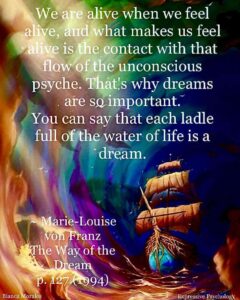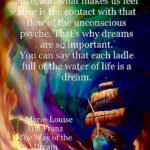
Marcus Borg is a Biblical scholar and best-selling author who sees God as both transcendent and indwelling everything, a perspective called “panentheism.” (Note the second syllable, “en.”) I’ve been a fan for a long time, so when he came to Orlando recently I couldn’t wait to hear him speak, especially about “Mysticism And Why It Matters.” This is not an easy topic to write or talk about, and I was hoping for some pointers. Not only did he provide some, but he handed out summaries of his lectures and encouraged us to borrow liberally from them! In what follows I have done so. Why try to reinvent the wheel?
Borg broadly defines mysticism as being “about union with the sacred. Mystical experiences are ecstatic experiences of God/the sacred/reality/isness.” He notes that ordinary people have been guided and nurtured by these experiences for centuries. As a result, for them the Sacred Mystery is no longer an article of faith, but an element of experience.
According to William James, author of the classic, The Varieties of Religious Experience, mystical experiences have two primary features. First, they bring a Sense of Union with God/the Sacred. In this non-ordinary state of consciousness the dualistic sense of being separated from the world softens, dissolves, or falls away and the world looks different. For example, it might have a radiant luminosity, or you might have visions or feel a strong inner awareness of the presence of the Sacred. The second feature is a Sense of Illumination. You might see a strange light, or feel profoundly enlightened, or have a sense of awakening from a foggy blindness, or feel that your eyes have been opened to see reality, the world, and your life differently.
James notes four additional features of such experiences: ineffability (difficulty describing them in words); transiency (they are usually only seconds or minutes long); passivity (you cannot make them happen; they just do); and noetic (meaning you have a knowing, not just a feeling.)
Because some scholars and religious authorities view mysticism negatively or consider it problematic or unimportant, it is rarely discussed. This, despite the fact that it is the foundation of the world’s religions! In Judaism, Buddhism, Christianity, and Islam all the central figures — Abraham, Jacob, Moses, Elijah, the prophets, Buddha, Jesus, Peter, Paul, John, Mary Magdalene, Muhammad — experienced the sacred in personal, mystical ways and responded by creating religions that were in accord with the values of their particular cultures. Since then, the membership of each of these religions has contained mystics; many, quite well-known and respected even among the orthodoxy. Yet few people know it has relevance in today’s world.
The mistrust of mysticism derives from the fact that there have always been a few terribly unbalanced people whose mystical experiences lead them to do harmful things in God’s name. But know this: While the details and localized beliefs of religions vary widely, all authentic religions and Spiritual Warriors produce the same fruit: “love, compassion, a passion for God’s world.” This is the only test necessary for distinguishing between “diabolical” mystical experiences and healing ones which connect us to “what is” and empower us to help make the world a better place through love. May we all experience more of this sacred mystery.
For more information, enjoy this video of wisewoman Jean Houston speaking about mystical awakening.

A Lesson on Aging
I’m so happy to be back in the mountains. I love the weather, the trees, the birds, the rushing creek, the flowering bushes. The beauty.





0 Responses
Thrilled to come across this post. I’m a Divinaturist, and at the heart of that lies the concept of panentheism. In fact, a message board I run is called Mystical in the Mundane (as is a blogger blog I have). I realized one day that God was not only within that blade of grass dancing in the breeze, but was also in the movement of the trees, and the caress of the wind… also, God was beyond all that. I love life. Every day there is a chance to learn something new. Thanks for posting.
Hi Terra Spirit,
I’m glad you found meaning in this post. I, too, see God in and beyond everything and lately seem to be constantly reminded of it. In fact, as I sit here at my computer I have a coffee cup in front of me that bears this quote from Goethe: “Nothing is worth more than this day.”
Thanks for the reminder that the Mystery is everywhere: in the pictures of my grandchildren behind the coffee cup, in the lit candle to my left, in the view through my window of the slender bald cypress trees with their gently swaying beards of Spanish moss.
Thank you for writing.
Jeanie
Jeanie,
An important topic, one that is not discussed openly and pragmatically enough. Americans in particular can look back to their roots in the Transcendentalists like Whitman and Thoreau to reconnect with the nature mysticism that forms so much of our national character–a character that is being sorely tested these days…..
May your words call many together in the common quest to recover our unity with nature, one another, and the sacred…..
Much Love,
William
Hi William,
The other night I heard a speech by a landscape architect who said the first Europeans to arrive in America used reverent terms in describing the new world as an Edenic paradise! Some years later, the pilgrims came and described it as a wasteland in desperate need of being tamed. His point was that people are divided in two camps regarding Nature: one camp sees it as sacred and wants to preserve its wild, lush beauty; the other sees it as profane and wants to tame, develop and exploit it.
You bring up an excellent point about the importance of the written word in calling us together to recover our unity with nature, each other and the sacred. Thank you for the reminder that Whitman and Thoreau belonged to the first camp as did the European romantic poets like William Blake, Robert Burns, Coleridge, Keats and Shelley. I am grateful to contemporary writers like you, the poet Mary Oliver, and Terra Spirit whose work radiates this mystical awareness which is so crucial to our survival.
Much love back at you,
Jeanie
the greatest joke is man’s story of creation
Hello. It’s good to hear from you! Yes. When will we learn that we project our own thoughts, wishes, personalities, and unconscious potential onto Deity?